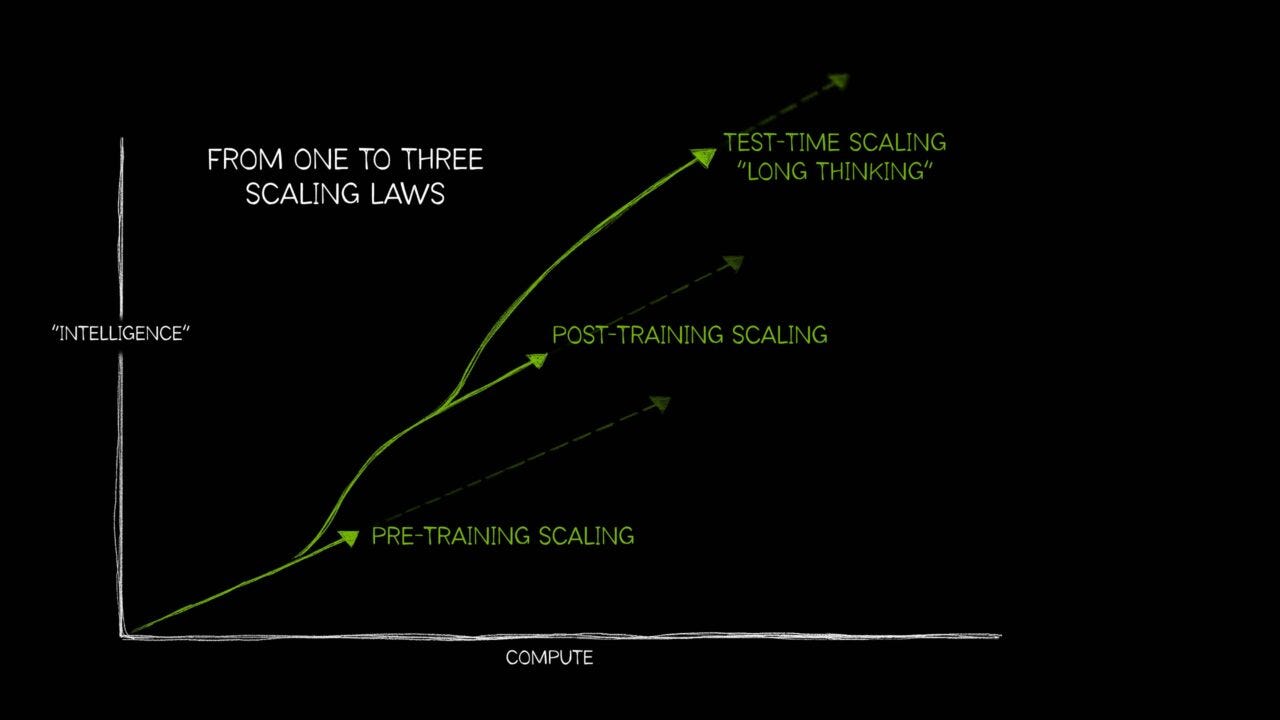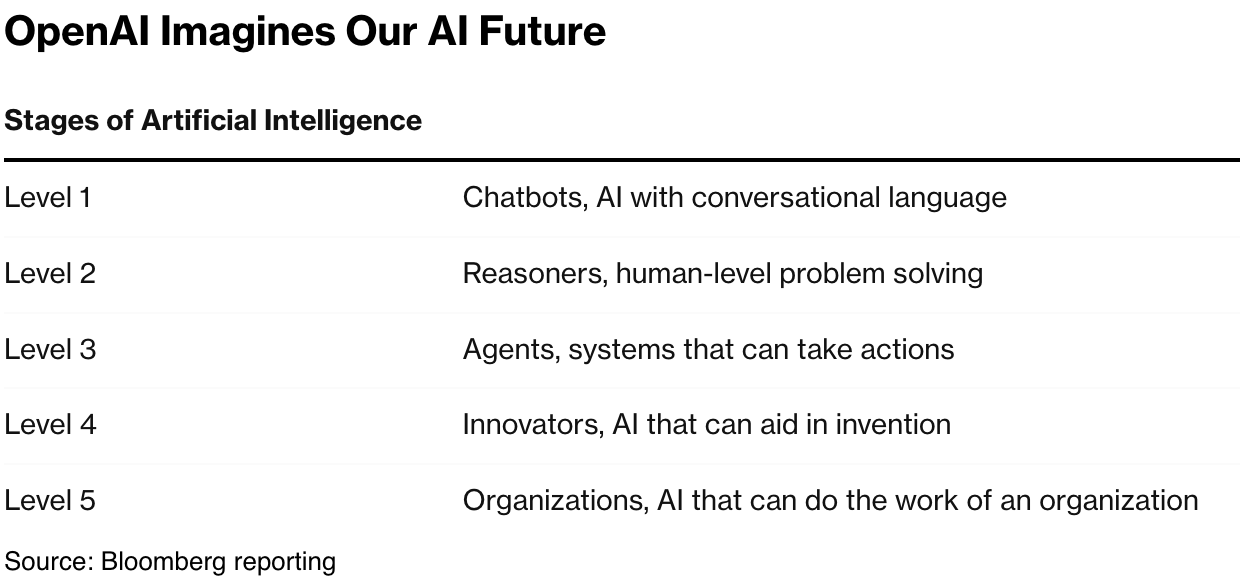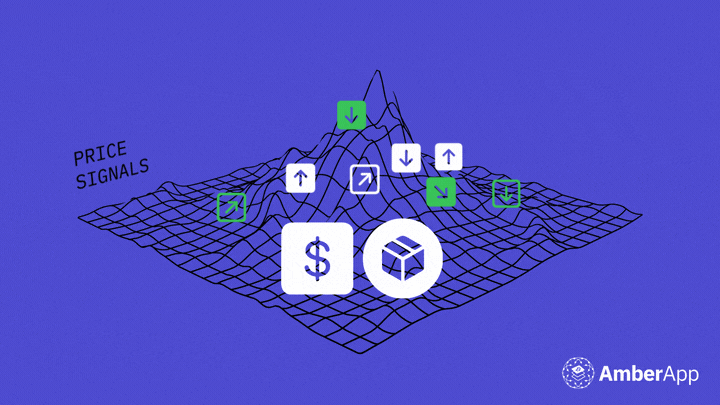
AI: Testing the upper tiers of AI Pricing. RTZ #650
I’ve discussed for a while that price discovery for AI applications and services in this AI Tech Wav, will be a slow and steady market discovery process. Typical for most good and services. Different here only because of the exponential growth in AI capabilities, and decreases of costs. Not to mention the same for the variable costs as millions and soon billions use AI like they use water and electricity.
So it’s to be expected that new pricing tiers are contemplated and tested, often breaking new ground for software services. The $20/month tier for AI services was just a start, with various ways to bundle these things being tried out. And again, OpenAI is in the vanguard, as we wade deeper into AI reasoning and agents.
The Information lays out these newer possible pricing options in “OpenAI Plots Charging $20,000 a Month For PhD-Level Agents”:
“OpenAI is betting big on ChatGPT, which is generating at least $4 billion in annualized revenue. But that’s not the only application the AI firm is hoping will make big bucks. If you saw our story last month detailing OpenAI’s financial projections, you might have noticed an intriguing reference to revenue expected to come from another type of application: Agents.”
“The term “agents” typically refers to AI that can take actions on behalf of customers without needing a lot of direction. While OpenAI investor SoftBank has committed to spend $3 billion on agents from OpenAI this year alone, we haven’t had a great idea of what OpenAI might charge for these agents—until now.”
The company is deep in the price discovery process:
“OpenAI executives have told some investors it planned to sell low-end agents at a cost of $2,000 per month to “high-income knowledge workers”; mid-tier agents for software development costing possibly $10,000 a month; and high-end agents, acting as PhD-level research agents, which could cost $20,000 per month, according to a person who’s spoken with executives.”
“In the long run, OpenAI expects 20% to 25% of the company’s revenue to come from agent products, the person said.”
These have been evolving fast of late:
“Our past reporting has given hints about each of these types of agents:”
-
“OpenAI recently demonstrated ChatGPT’s ability to sort through and rank sales leads, an example of the sort of “high-income knowledge worker” work its models can handle.”
-
“In January, we broke news that OpenAI has been working on a coding assistant product targeting senior software engineers and explained the types of tasks it might do. That sounds like the mid-tier agent OpenAI discussed with investors.”
-
“In November, we explained how researchers at Lawrence Livermore National Laboratory have been using OpenAI’s o1 model to solve questions related to nuclear fusion. Presumably that reflects a PhD-level of intelligence, or something close to it.”
And as I’ve discussed before.,the process is more art than science in both the enterprise and consumer markets. Especially with new fangled, and barely working technologies like AI Reasoning and Agents:
“How to price AI applications is still a work in progress across the industry. Some companies are stuffing AI features into app bundles like Workspace and Office 365 and increasing the price, while others are charging for AI features only when they solve a task. Meanwhile, Devin, the coding tool created by startup Cognition, costs around $500 a month for a coding agent similar to what OpenAI hopes to launch.”
“As a reminder, OpenAI’s most expensive subscription tier today, ChatGPT Pro, costs $200 a month and was growing nicely as of several weeks ago. But ChatGPT Pro isn’t technically an “agent” the way the PhD-level research agent or coding agent would be (though buying the subscription does give you access to OpenAI’s web-browsing Operator agent).”
The current approach is of course driven off ‘replacement cost theory’ of costs of humans. But this is likely to shift to ‘augmentation opportunity’ where humans can be far more productive with more capable AI software:
“It stands to reason that customers would be willing to pay a lot more for AI that effectively does the work of a $200,000-per-year software engineer or to speed up important medical research. Such potential customers are probably getting a great deal with Pro, which could be the reason that tier is still unprofitable.”
“OpenAI CEO Sam Altman reportedly told developers in London last month that OpenAI is primed to charge 20% or 30% of Pro customers a higher price because of how many research queries they’re doing, but he suggested an “a la carte” or pay-as-you-go approach. When it comes to agents, though, “we have to charge much more than $200 a month.”
“OpenAI has been a trendsetter in pricing AI applications as well as application programming interfaces, so all of its rivals will watch Altman’s pricing decision with great interest.”
Expect more of the industry to widen and deepn this price exploration in the months fo come. This AI Tech Wave is just getting started on the possbilities on the fitting price for the best form and function of AIs to come. Stay tuned.
(NOTE: The discussions here are for information purposes only, and not meant as investment advice at any time. Thanks for joining us here)










